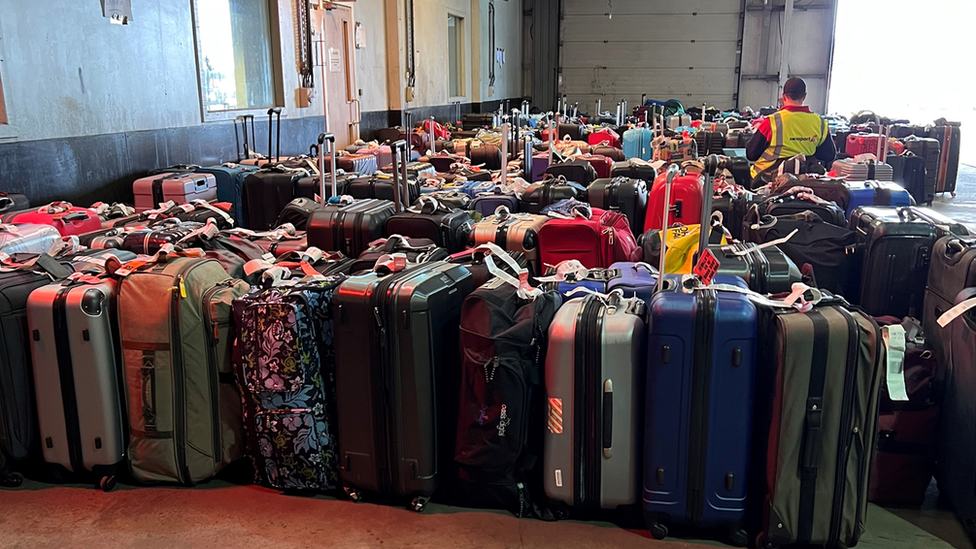Energy costs push four in 10 firms to scale back
- Published
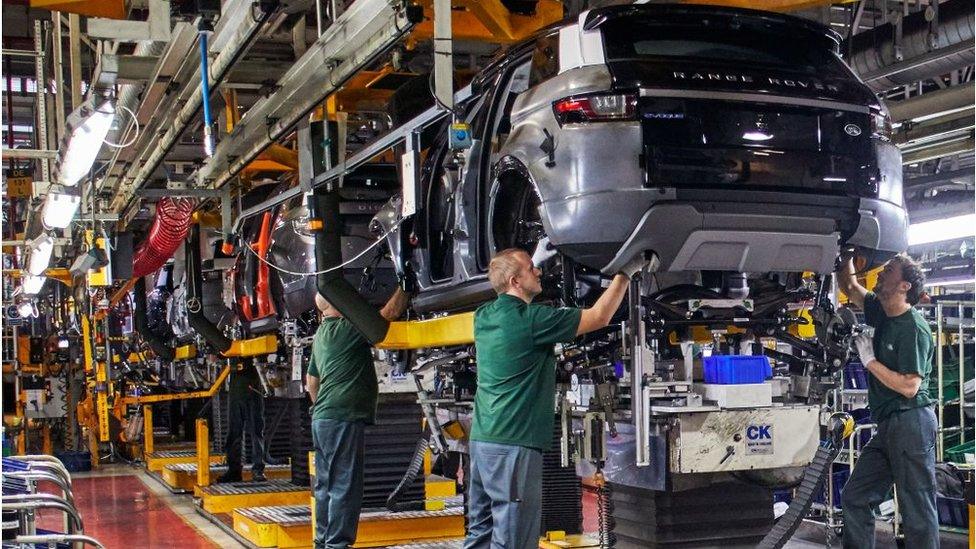
There has been increasing output in the car production industry
Amid tough economic times, at least there are some indications from business that supply chain blockages may be easing
Fuel costs and skill shortages continue to hamper efforts of business to get back to pre-pandemic capacity
The impact of rising energy costs is back, as tensions rise over Russia's gas exports, sending a winter chill into the middle of summer
With a heatwave and the prospect of drought, inflation rising further and energy bills soaring fastest of all, queues to exit the UK and baggage stuck in a warehouse on your return with global recession looming and Britain facing the worst downturn among industrialised nations other than Russia, it's possible to feel a bit gloomy about the state of the economy.
Add to that the tensions and disruption in public services, from NHS backlogs due to Covid and profound problems with health service staffing, to strikes on railways and likely in local councils. The best such workers can hope for is to retain their spending power: most of us face a real terms cut in income.
Yet, there are some glimmers of hope, and they come from business people. Their role is not so much to curse the darkness, but to strike a light, and hope that it can help them find a route through tough times.
Microchip shortages
So the good news is that supply chain blockages are easing up a bit. That's the message from the Society of Motor Manufacturers and Traders this morning, having had months of low production, mostly due to a global shortage of microchips, but also as they go through the transition to new models for an electric future.
UK car production for the first half of the year was down 19% on last year, and down 33% on 2019. But June was the second month of increasing output, and there's the prospect of a full-year rise in output as supply chains ease in the second half of 2022.
I'm hearing also from construction, where material prices have soared but at least the supplies are getting through.
It may help that two new container routes were announced this month, directly linking Grangemouth with Rotterdam and Greenock with China (in both cases, it seems to be Scotch whisky exports that provide sufficient volume to make the ships stack up financially - more on that with this morning's full-year results from Diageo).
Skills shortage
That easing of supply-chain disruption is also coming through the quarterly monitor carried out by the Fraser of Allander Institute along with legal firm Addleshaw Goddard.
To be clear, those supply blockages are only easing. They're not solved. They now affect slightly less than half of businesses, down by four percentage points, and the biggest improvements have been in the Transport and Storage sector.
But they help businesses responding to the survey to be more positive than negative about their outlook for the year ahead.

The hospitality industry is still experiencing recruitment problems
There's not much else that's reassuring about the findings of this survey. The other main concerns continue to be the costs of energy and the availability of staff.
Of those firms with vacancies, 86% say they're proving hard to fill. The lack of skills or experience is a problem, but so are the going rates for wages. Plus 40% of businesses surveyed expect to reduce their operations this year due to higher energy prices, up from 33% in the first quarter of this year.
What we seem to be seeing is the economy trying to get back to pre-pandemic production while well below capacity. There's still a post-lockdown rebound to be seen in the most recent Scottish government data for output in May, reversing the decline in April. But over a longer period, and around the world, it's running out of momentum.
That under-capacity is easily seen in the hospitality trade and retail, where outlets can't get the staff to open for as many days as they used to. A lot of that has to do with recruitment difficulties, greatly exacerbated by the Brexit block on Europe's labour pool.
When the Office for Budget Responsibility said Britain would be operating 4% below its trend growth due to Brexit, this is how forecasts translate into reality on the high street.
Gas pipeline
But with a further four in 10 firms cutting back due to fuel bills, that leads through to poor productivity, lower earnings and, probably, fewer jobs.
Businesses have not been protected from rising fuel bills by the price caps that apply to domestic customers.
But those costs catch up with household budgets as well, and the latest projection of wholesale prices, putting up annual average household dual fuel bills to £3,800 from January, reflect the heightened tensions around Russia's supply of gas to the European Union.
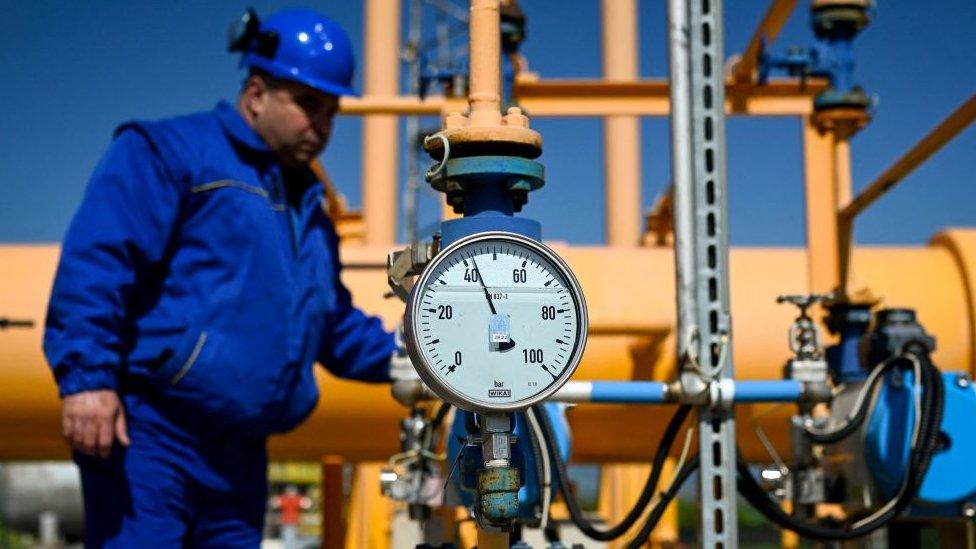
The UK may be out of the union, and only 5% of its gas has been from Russia, but it's not out of the international gas market.
It is impossible for Britain to avoid the impact of lower supplies through the Nordstrom gas pipeline from Russia into central Europe.
They may ease, but more likely is that Russia will use the gas taps to turn the economic screw on the political leadership of Europe.
So with prices spiking again - at more than eight times the prices being paid a year ago, and twice the prices last month - next winter's chill is already being felt in energy markets, and by anyone planning a household budget.
- Published27 July 2022
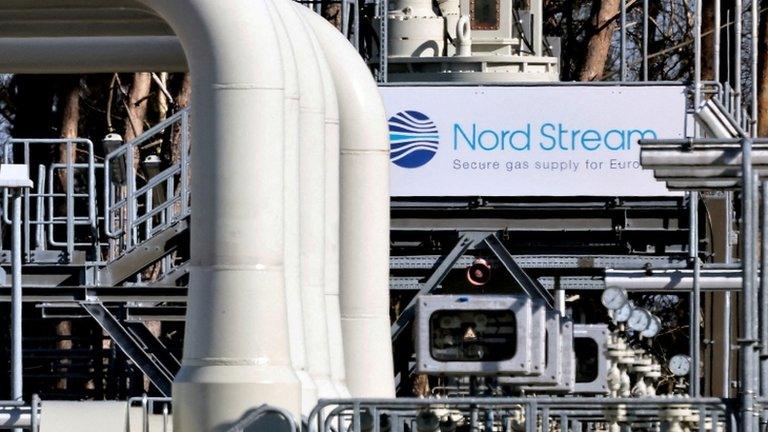
- Published27 July 2022

- Published27 July 2022

- Published26 July 2022
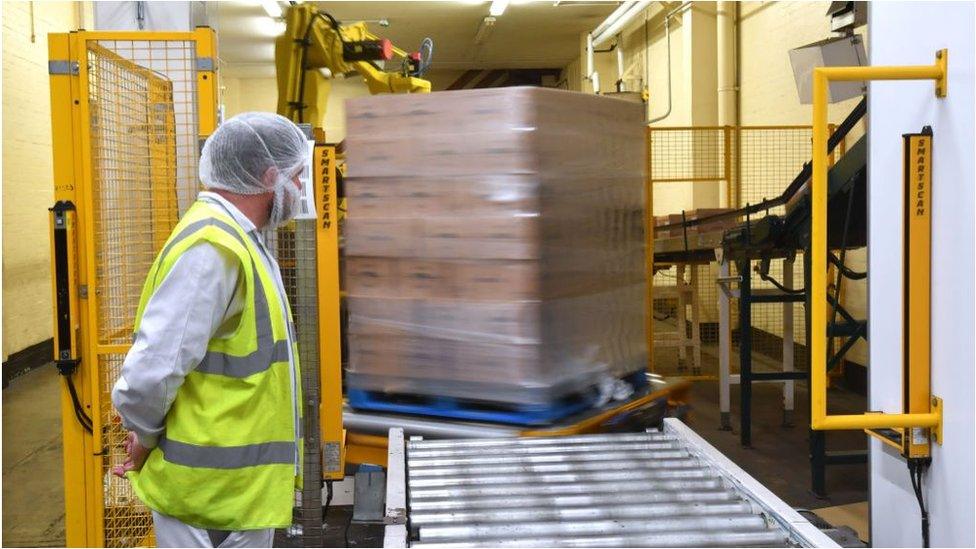
- Published25 July 2022

- Published25 July 2022

- Published16 July 2022
